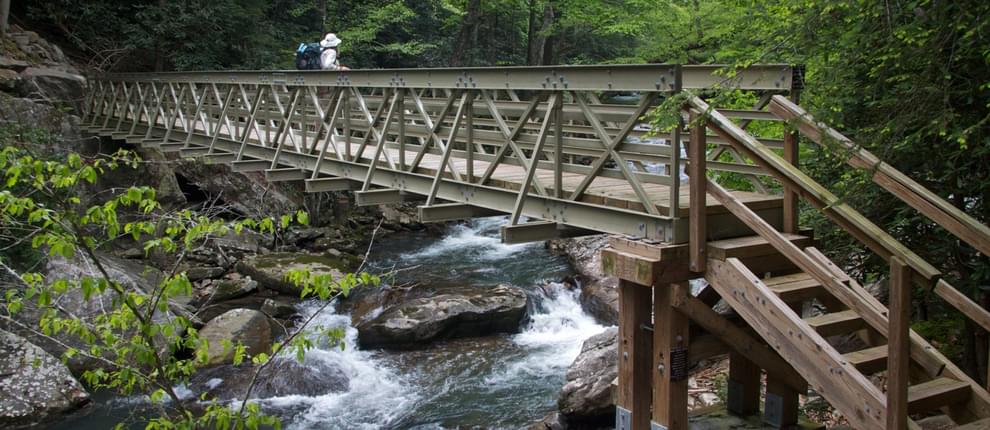Outstanding projects funded by RTP were presented at a special Capitol Hill ceremony in Washington, D.C. on June 14, 2001 sponsored by the Coalition for Recreational Trails.
The Annual Achievement Awards are part of the ongoing effort to build awareness and appreciation of the highly successful Recreational Trails Program (RTP). Outstanding projects funded by RTP were presented at a special Capitol Hill ceremony in Washington, D.C. on June 14, 2001 sponsored by the Coalition for Recreational Trails.
The trail projects and programs honored for 2001 are:
Locust Creek Riparian Trail Park, Jefferson City, Missouri and the East Trapps Connector Trail in the Mohonk Preserve, New Paltz, New York, in the category of Construction and Design - Local
Cumberland State Trail Park, Crossville, Tennessee, in the category of Construction and Design - Long Distance
Pelham Bay Park Bridle Path, New York, New York, in the category of Maintenance and Rehabilitation
Southeast Alaska Avalanche Center Education Project in the Category of Education and Communication
Continental Divide Snow Trail Grooming Program, Wyoming, in the category of Multiple-Use Management and Corridor Sharing
Snow Trail Signing Program, Wyoming, in the category of Environment and Wildlife Compatibility
Cedar Ridge Trail, Tuttle Creek State Park, Manhattan, Kansas, in the category of Accessibility Enhancement
The Recreational Trails Program
The Recreational Trails Program of the Department of Transportation's Federal Highway Administration provides funds to the States to develop and maintain recreational trails and trail-related facilities for both nonmotorized and motorized recreational trail uses. RTP funds come from the Federal Highway Trust Fund, and represent a portion of the motor fuel excise tax collected from nonhighway recreational fuel use.
Since 1991, more than 20,000 RTP-funded projects have been fuunded nationwide and are documented on the RTP database: www.recreationaltrailsinfo.org. The RTP leverages hundreds of millions of dollars of additional support from other sources for trails, encourages productive cooperation among trail users, and facilitates healthy outdoor recreation and economic activity across America.

